Screening Over 300 Patients for Oral and Oropharyngeal Cancer
Susan Cotten RDH, BSDH, OMT and the Colorado Mission of Mercy oral cancer screening team screened over 300 patients for head and neck cancers in Canon City, Colorado at the free 2-day dental event organized by Colorado Mission of Mercy (COMOM).
In just one day, the team screened over 200 people, and 100 more the next day. They captured teledentistry images and videos of suspicious lesions in the mouth and emailed to an oral surgeon for further evaluation. The oral exam area featured eight chairs each supplied with a TelScope Telehealth System while the experts conducted these head and neck cancer exams.
This event enabled 650 patients to safely receive oral healthcare services for no cost!
Images from the oral cancer screening in Canon City with Colorado Mission of Mercy – using TelScope Telehealth System
Why Screening for Oral Cancer is Important
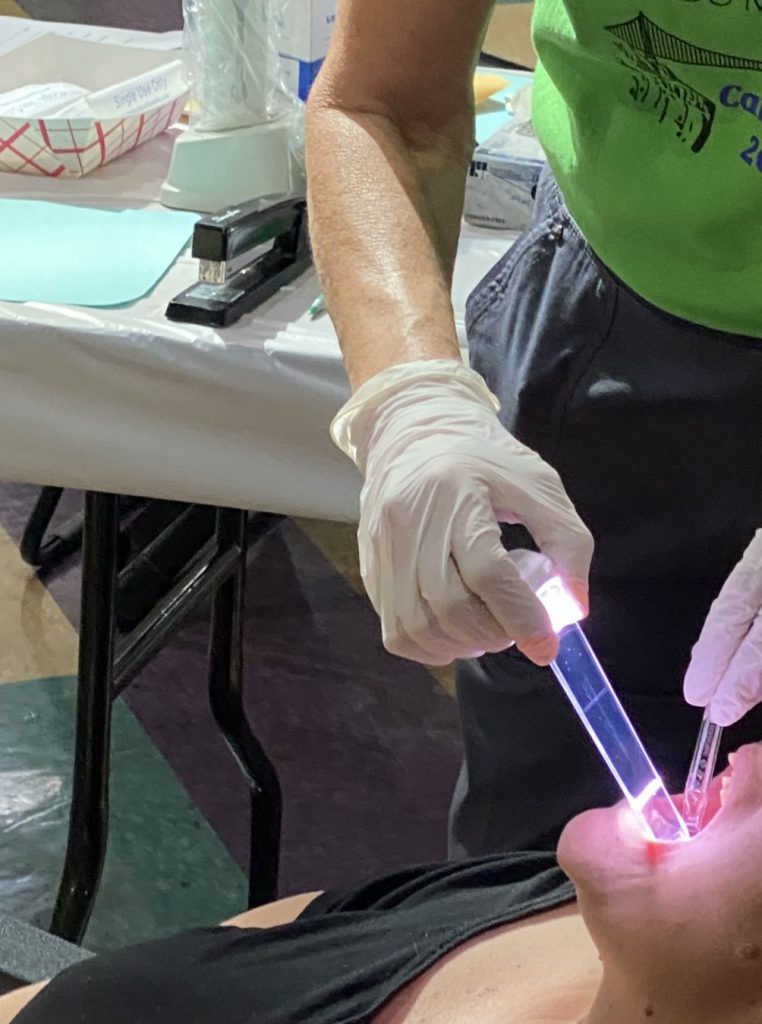
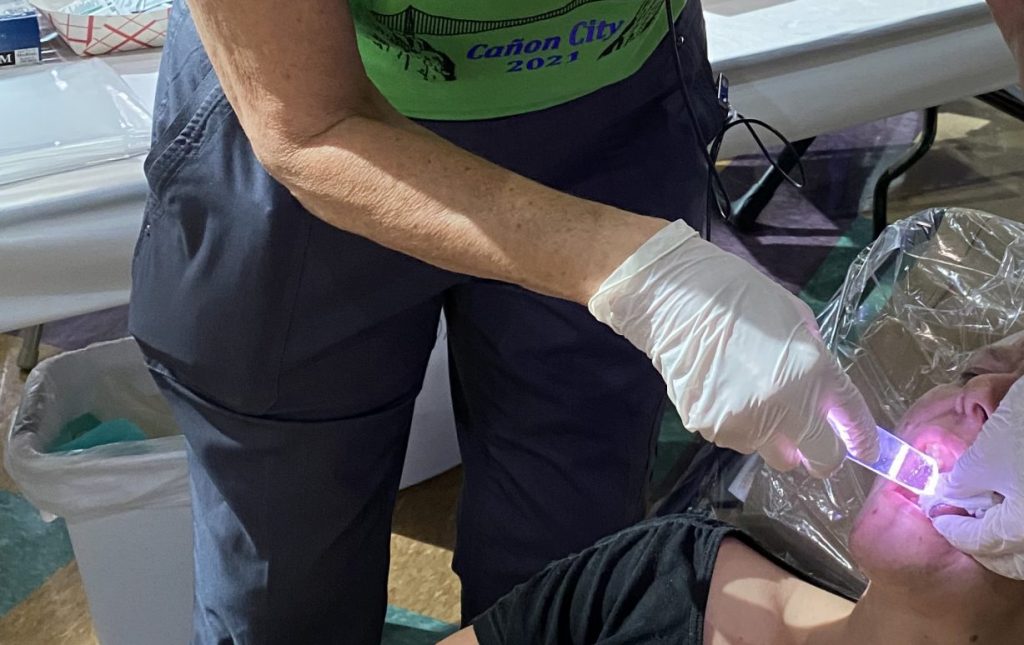
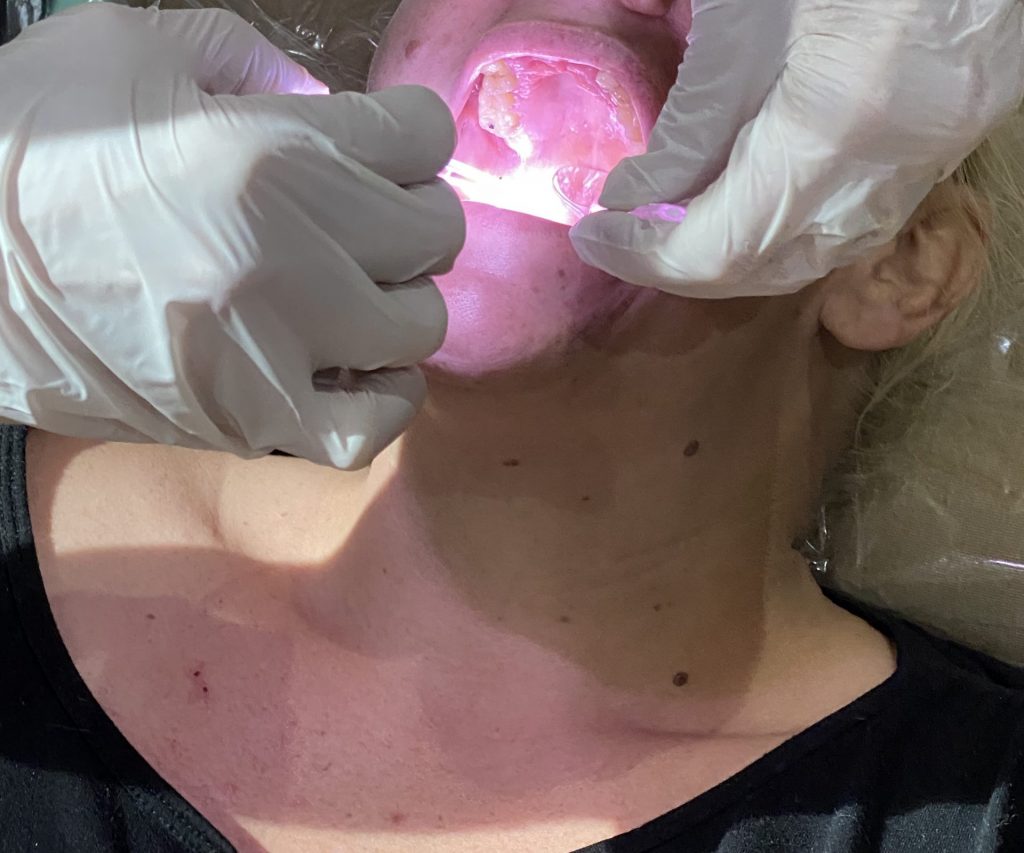
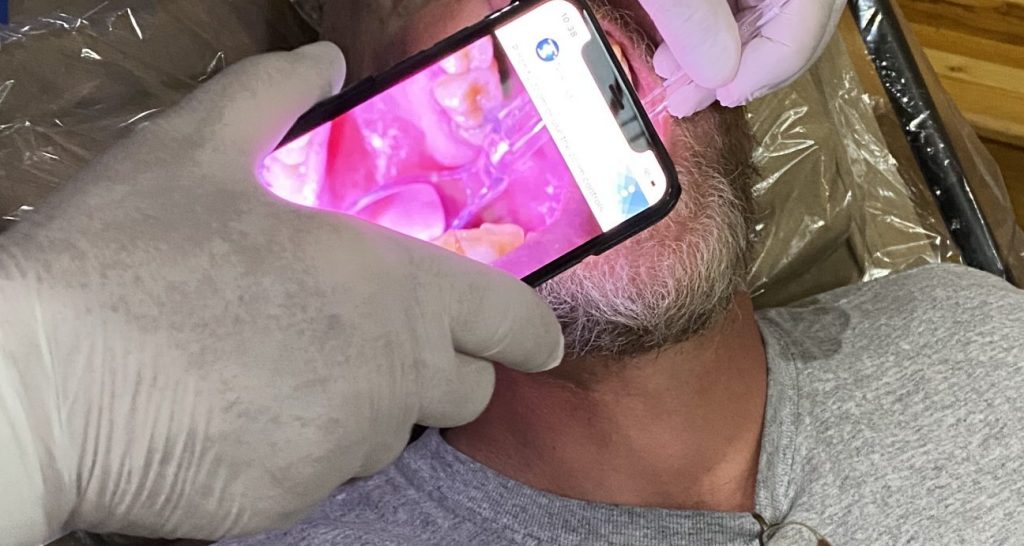
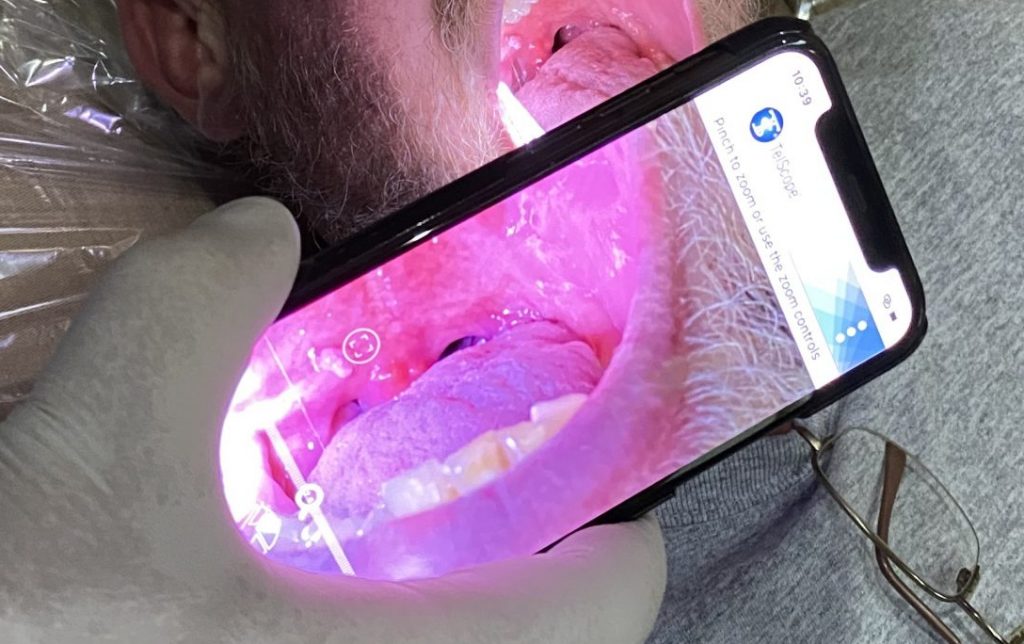
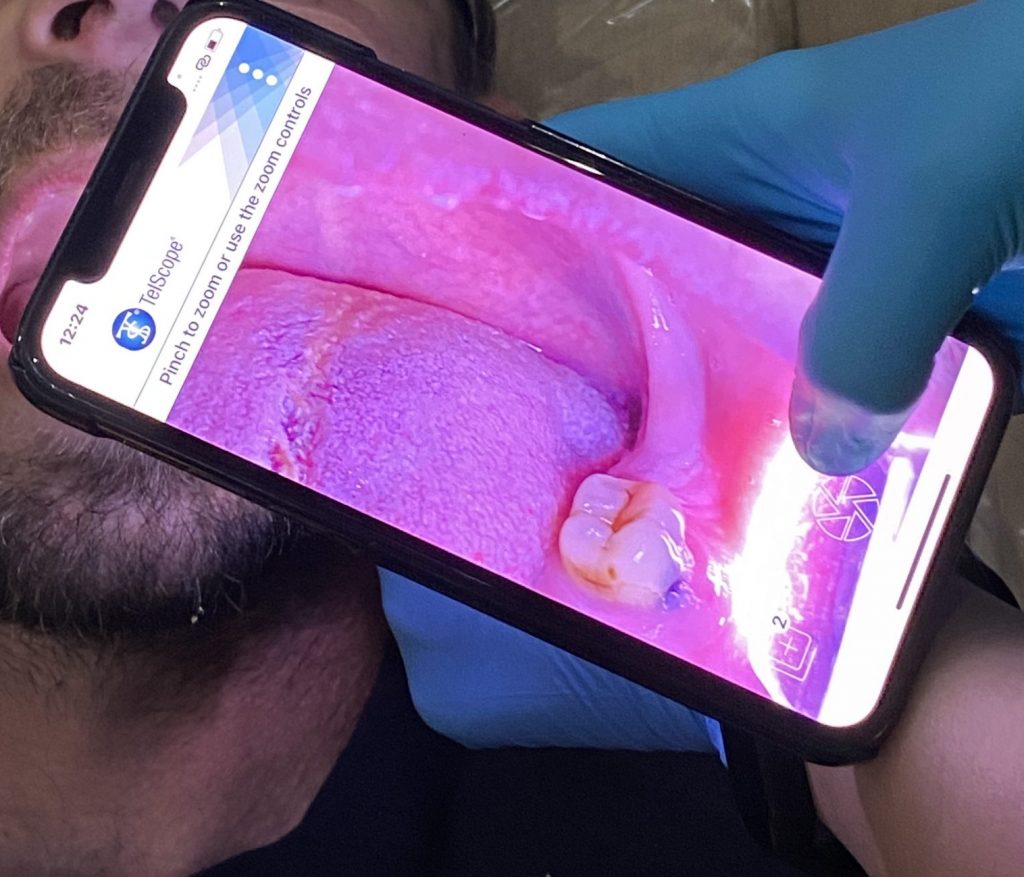
“Due to inadequate screening and late stage diagnosis people die every day. I educate on best practices for screening and office systems so that doesn’t happen.”
Susan has written up the below to give an idea of why screening for oral cancer is becoming increasingly important:
While the term oral cancer is commonly used, there are really two cancers we are talking about when we say the general term “oral” cancer.
- Oral cancer: Cancers in the anterior portion of the mouth – everything that isn’t listed below in the oropharynx.
- Oropharyngeal cancer (also called throat cancer): Cancers in the posterior portion of the mouth, the oropharynx – consists of the soft palate, uvula, pharyngeal walls, palatine tonsils, lingual tonsils, posterior base of the tongue, back wall of the throat.
So when we read that approximately 54,000 Americans will be diagnosed with oral cancer in 2021, this number includes oral and oropharyngeal cancers (Oral Cancer Foundation).
Oral cancers are caused most by tobacco and alcohol use. Combining the two increases the risk 15 times more. However, Tobacco and alcohol are etiologies for both oral and oropharyngeal cancers.
Human Papillomavirus (HPV-16) causes about 70% of oropharyngeal cancers, and rarely causes oral cancers.
It is the HPV oropharyngeal cancers that are most on the rise and responsible for the increase in the number of cancers diagnosed.
Assessing if your Patients are at Risk
It is important to screen all patients for oral and oropharyngeal cancer, especially because these cancers are on the rise in young, “seemingly healthy” patients.
Those most at risk for HPV-related oropharyngeal cancer are non-white smoking males ages 35 to 55. This subset is not who we historically have known were high risk for “oral” cancers (Oral Cancer Foundation).
Men are four times as likely as women to contract oropharyngeal cancer.
Another area where we are seeing an increase is in the number of oral/anterior portion of the mouth cancers in young females. Their oral cancers have no known etiology, so not tobacco, alcohol, or HPV caused. This is a good reason for medical and dental providers to perform screenings on all patients.
As stated above, HPV oropharyngeal cancers are the most on the rise. Transmission of the HPV virus to the oral cavity is through oral sex. A greater number of oral sex partners increases the risk of exposure to HPV and having an oral HPV infection. However, an oral HPV infection may occur with just one exposure. It is the persistent HPV infection that tends to at some point cause cancer. It is suspected that open mouth, deep aggressive kissing may also be a way of transmitting HPV orally.
Further risk factors include being immunocompromised, genetics, previous head and neck cancer, poor oral health, and having a poor diet.
Questions you can ask patients:
(persistent = two weeks or longer – Any sign or symptom persisting for two weeks should be investigated further by a specialist.)
- Do you have any persistent lesions, sores, lumps, bumps, or growths in your head and neck region, or inside your mouth?
- Do you have any difficulty swallowing, or the sensation of something caught in the throat that won’t go down?
- Have you noticed any persistent, non-painful, swollen lymph nodes in your head and neck area?
- Are you experiencing persistent hoarseness, change in voice, cough, sore throat, pain or numbness in the head and neck region, or inside the mouth?
Free Head and Neck Cancer Screening Course
“The Changing Faces of Head and Neck Cancer” is a free online training course that teaches professionals how to screen for the early signs of head and neck cancer, including HPV-related oropharyngeal cancer.
Schedule your Free 10-minute Demo
TelScope Telehealth System is an oral examination tool that illuminates inside the mouth, depresses the tongue, and retracts the tongue and cheek to allow for head and neck cancer screening.
About Susan Cotten, RDH, BSDH, OMT

Susan Cotten, RDH, BSDH, OMT is the owner of Oral Cancer Consulting and a subject matter expert on HPV (human papillomavirus) and oral and oropharyngeal cancer screening. She created the “Cotten Method”, a comprehensive approach to early detection of oral cancer.
- Regional Coordinator and RDH Advisory Board member for The Oral Cancer Foundation
- Recipient of the Sunstar/RDH Award of Distinction, Colorado Dental Hygiene Association Outstanding Contribution and Ethyl Covington Awards
- Dental workgroup lead and trainer for Alliance for HPV-Free Colorado
- Board member and oral cancer screening coordinator for Colorado Mission of Mercy
- A director with Dental Codeology Consortium
- Founded M.A.D. for Healthy Smiles as part of the Donny Osmond Make a Difference program
- Has organized countless free oral cancer screening and awareness events
- Has volunteered with the Denver Homeless Head and Neck Cancer Screening and Care Group
